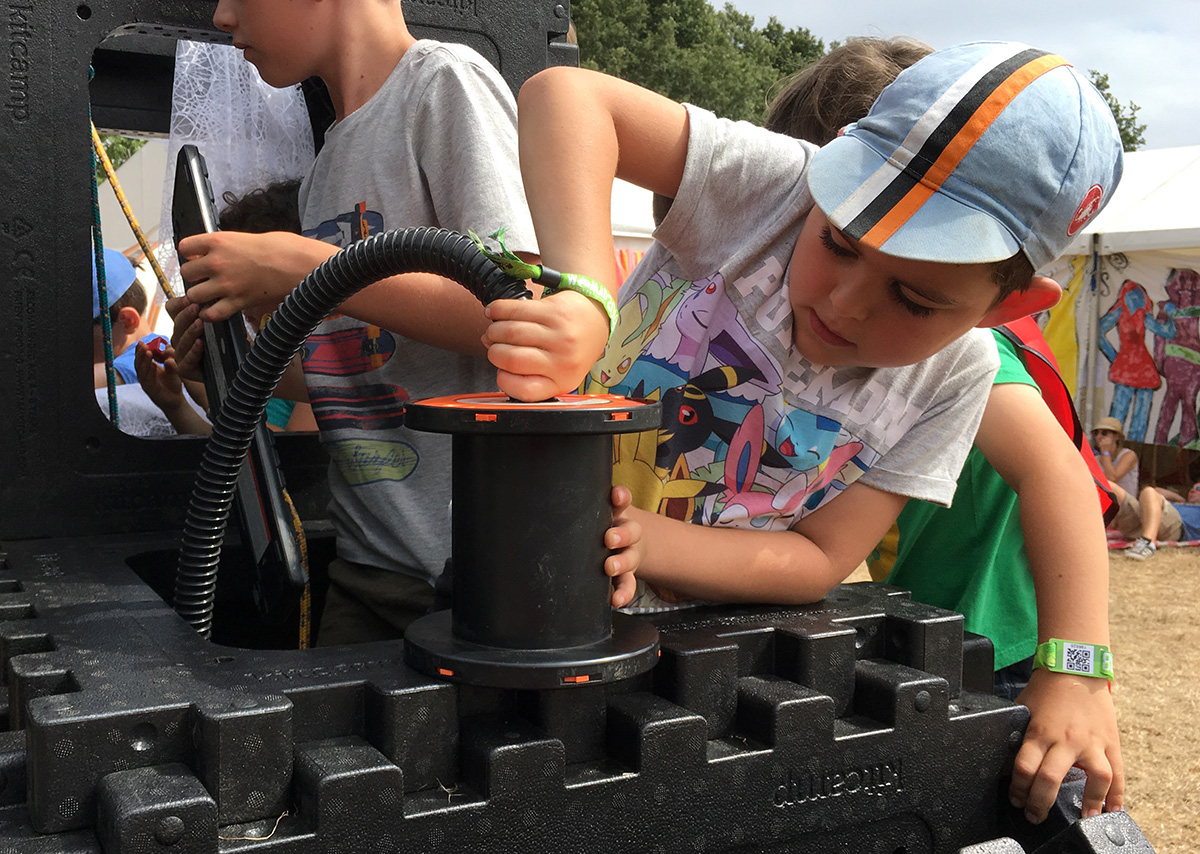Play and the pale blue dot

The late American astronomer and astrophysicist, Carl Sagan, described our planet as the ‘pale blue dot’, described as such after seeing an image of earth taken in 1990 from the Voyager 1 space probe, from a distance of about 6 billion kilometres.
His book, “Pale Blue Dot”, explores claims that earth and its inhabitants are unique. The extent of our certain knowledge defines this to be true, and should form the very basis of our attitude to this ‘pale blue dot’.
Recently, we published a blog article, “Moving towards a circular economy”, and our human attitude to plastics. It takes the shape of a cog in the machine, or more appropriately, an ecosystem within a biosphere.
Major challenges
Unfortunately, it comes as no surprise that our biosphere is facing unprecedented challenges, and we’re the architects.
Two major challenges facing our biosphere are closely related. Climate change is an undeniable reality, with consequences most of us are yet to comprehend. The other is plastic, with production at record levels and rising, as outlined in “Moving towards a circular economy”. There are, of course, others, such as war, poverty and resultant migration. For the people involved their challenges are tangible and immediate, and heightened on a daily basis. Sadly, all are likely to increase from further ecological pressures.
Despite these impending scenarios of climate catastrophe, whilst being overrun by plastic, we are an incredibly innovative species. If we have the capacity to engineer these disaster scenarios, it should be within our means to solve them.
Are we educating to learn?
The answer to many a human challenge is education, yet it’s fair to say there is education, and then there is learning. If education doesn’t deliver effective learning, what is the point?
Likewise, it’s one thing to talk about a challenge or a problem. The real discussion is what we do about it and how we solve it. We are not here to pass on the global challenge baton to the next generation. These issues cannot be swept aside in a few years, nor a generation. They’re monumental and they’re here to stay, for centuries.
We need an education system that equips children with the necessary human skills to take on these challenges. Let’s not be confused and distracted by the role technology plays in this debate. Handing children more technological tools at a young age can be useful, provided we remember they are just that, tools, and that computers and AI will do many of the facilitating tasks in the future. Without the necessary human skills these tools become gadgets, which solve very little, if anything at all.
Learning for the future
We need to create environments where children learn to:
- have strong problem solving skills;
- think creatively and outside the box;
- be curious, not compliant;
- be able leaders, capable of challenging conventions;
- demonstrate empathy, in particular to global issues;
- communicate effectively and collaborate on sharing knowledge.
There is a single unifying answer that naturally develops these skills in young children – PLAY. This connection is not made lightly. Play is often overlooked within education because our, largely western, one-size-fits-all education system has systemically dismantled the principle of Play and its intrinsic importance to learning life skills. The emphasis has steadily shifted and is heavily weighted in favour of academic attainment through exam results.
In the UK, the Arts have gradually been erased from STEAM (Science, Technology, Engineering, Arts, Maths), and the focus narrowed to STEM. This shift immediately limits, or removes, more than half the required needs outlined above – creativity, empathy, communication.
Academic attainment, or the relevance of STEM, is not to be dismissed, however, the importance of childhood, our instinctive and natural ability to learn through play, and recognising the appropriate development capabilities of children, deserves the attention the research provides.
PLAY – Instinctive, Inherent, Important
From birth we are learning through play. It’s an instinct and inherent human attribute in all of us that aids communication, creativity and curiosity. By denying it to our children we are denying them the skills required for the future. I’m not aware of any profession, craft, system or discipline that removes the intrinsic building blocks and expects great results.
I’m not aware of any profession, craft, system or discipline that removes the intrinsic building blocks and expects great results.
The World Economic Forum recognises the significance of Play in dealing with a fractured world. Its Global Human Capital Report 2017 states that schools are “disconnected from the skills needed to function in today’s labour markets”.
Sal Khan’s TED talk on mastery, although focused on traditional subjects, describes how education isn’t working because of our focus on test scores.
Sir Ken Robinson’s advocacy of education transformation becomes clear when he describes in his talk, “How to escape education’s death valley”, the three principles required for the human mind to flourish. There is a real need to move away from the mechanised system of command and control to the more human approach of climate control, providing the right conditions for learning to flourish.
“The role of the teacher is to facilitate learning, that’s it.”
Sir Ken Robinson, TED talk, April 2013
We are facing a global crisis, which requires a global response. The purpose of education is to stimulate learning. They need to be wider and more flexible to the demands of change required for the global crises now, and in the future.

